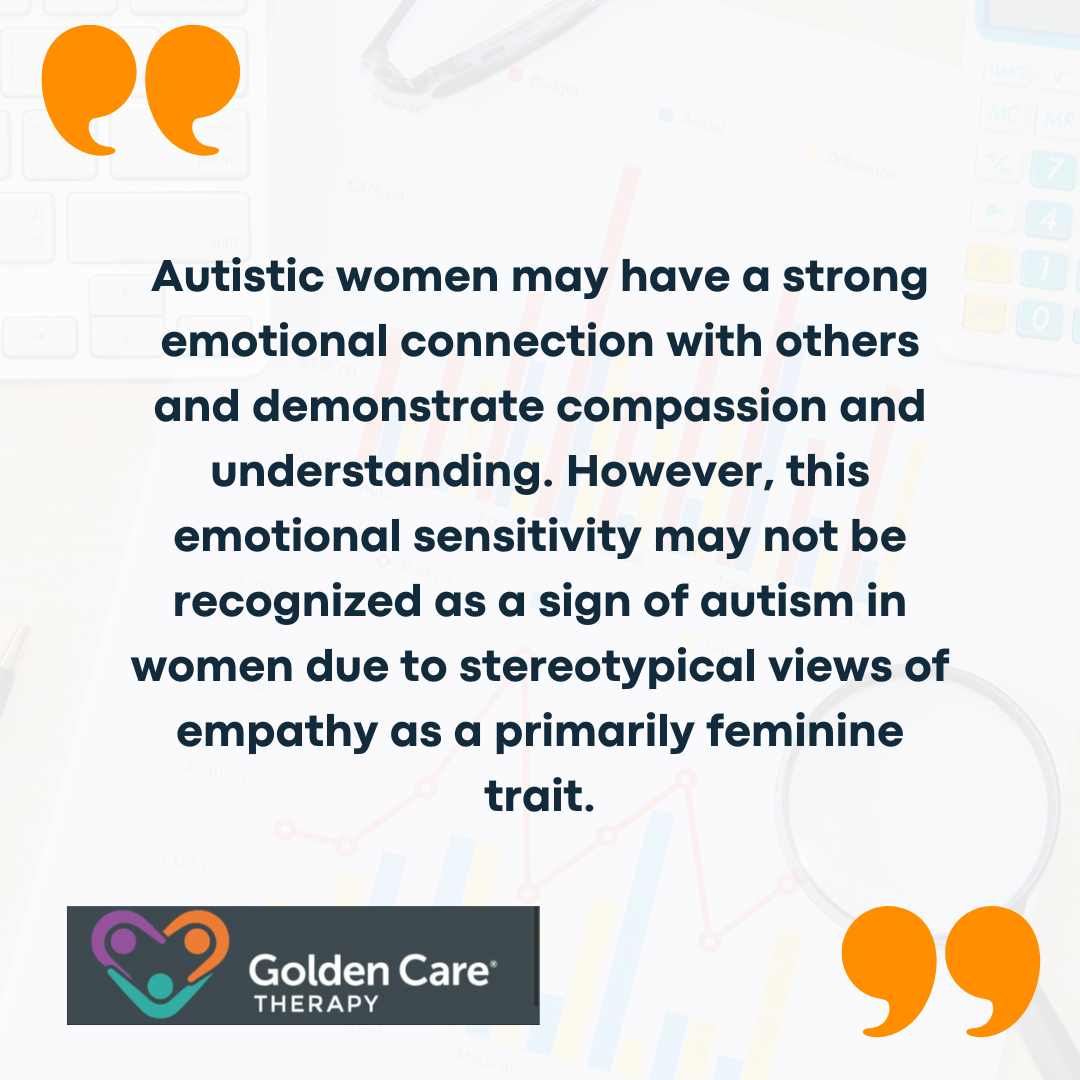Females with high-functioning autism often engage in masking, which involves adapting behaviors to suppress autism symptoms in social situations or developing living and communication skills that allow for independent living.
This masking can make it more challenging to identify autism in females and may result in a later diagnosis.
According to research, females are more likely than males to mask their autism symptoms. They often adapt their behavior to fit in and cope with social situations. This masking can involve imitating the social behaviors of neurotypical peers and hiding their true struggles in social situations.
Autistic females who mask their symptoms may appear to be more socially adept than they actually are, making it difficult for others to recognize their underlying challenges.
So, how exactly can you tell if a female adult has high-functioning autism?

Social Challenges and Relationships
Autistic females may experience difficulties in making and maintaining social relationships, particularly friendships. While they may have the motivation to make friends, they may struggle with carrying on long-term relationships and managing conflict. These social challenges can lead to feelings of isolation and frustration.
One aspect of social interaction that can be particularly challenging for autistic females is making and maintaining eye contact. While they may find it difficult to make eye contact, some individuals force themselves to do so in order to hide their autistic traits.
This can be a coping mechanism to mask their difficulties and appear more neurotypical in social interactions.
It is important to note that autistic women who mask their symptoms may not receive the support and understanding they need until they seek evaluation from a trained diagnostician who specializes in identifying autism in women. Late-identified autistic women may express common signs of high-functioning autism, even if they are adept at masking their challenges.

Sensory Sensitivities and Responses
Individuals with high-functioning autism often experience sensory sensitivities and have unique responses to sensory stimuli
Another characteristic often seen in autistic women is the development of intense interests in specific areas or subjects. While having interests is common for everyone, autistic women tend to exhibit an exceptional level of intensity and focus on their areas of interest. These “special interests” can range from animals and fictional characters to psychology or other niche subjects.
The intensity and depth of these interests can lead autistic women to accumulate extensive knowledge and expertise in their chosen areas. They may spend a significant amount of time studying, researching, and engaging with their special interests.
However, it’s important to note that these intense interests may sometimes be overlooked as signs of autism in high-functioning autistic women, especially when they align with socially acceptable or common hobbies.
Emotional Sensitivity and Empathy
Contrary to popular stereotypes, emotional sensitivity and empathy are often heightened in autistic women. They can be deeply attuned to the emotions of others and display high levels of empathy.

It is crucial to acknowledge and validate the emotional experiences of autistic women. Their heightened emotional sensitivity can make them more vulnerable to the impact of social interactions and environmental stimuli. Understanding and supporting their emotional needs can contribute to their overall well-being and help them navigate the challenges they may face.
Diagnosing high-functioning autism in females requires a comprehensive evaluation that takes into account the unique characteristics and challenges that women on the autism spectrum may experience.
Nonverbal Cues Interpretation
Autistic women may find it challenging to interpret and respond appropriately to nonverbal cues, such as facial expressions, body language, and tone of voice. Difficulties in understanding these subtle social cues can result in misunderstandings and difficulties in forming and maintaining meaningful relationships.
The struggle to interpret nonverbal cues can lead to a retreat from social interaction, which may be misinterpreted as shyness or introversion rather than signs of autism.
Autistic women may exhibit behaviors such as social avoidance and minimal eye contact, which are common in both males and females on the autism spectrum.

Social Exhaustion and Emotional Regulation
Lastly, women with autism may find social interactions exhausting due to difficulties in reading non-verbal cues, understanding sarcasm or humor, sensory sensitivities, and the effort put into masking their behaviors. These challenges can lead to feelings of fatigue, anxiety, and depression.
In fact, among diagnosed adults with autism, approximately 70% experience depression while 50% experience anxiety.
The constant struggle to navigate social situations and adapt to social expectations can take a toll on the mental well-being of autistic women. It is essential to recognize the impact of social exhaustion and provide support and strategies to help individuals manage their social interactions effectively.
Additionally, people with autism, including women, may have difficulties with emotional regulation. This can result in intense emotional reactions such as meltdowns, aggression, shutting down, self-harm, or developing eating disorders or addictions as coping mechanisms. Emotional regulation issues can be compounded by communication difficulties, further impacting the mental health of autistic women.
By acknowledging these challenges and providing appropriate interventions and support, it is possible to improve the mental well-being of individuals with high-functioning autism.
Creating a supportive and understanding environment can help mitigate the negative impacts of misdiagnosis and promote positive mental health outcomes for autistic women.
If you’re seeking specialized ABA therapy in New Jersey, Indiana, Georgia, and New York, Golden Care offers comprehensive services tailored to meet the unique needs of each individual. Contact us to learn more or book a consultation today.
Sources:
https://www.medicalnewstoday.com/articles/high-functioning-autism-in-females-symptoms



